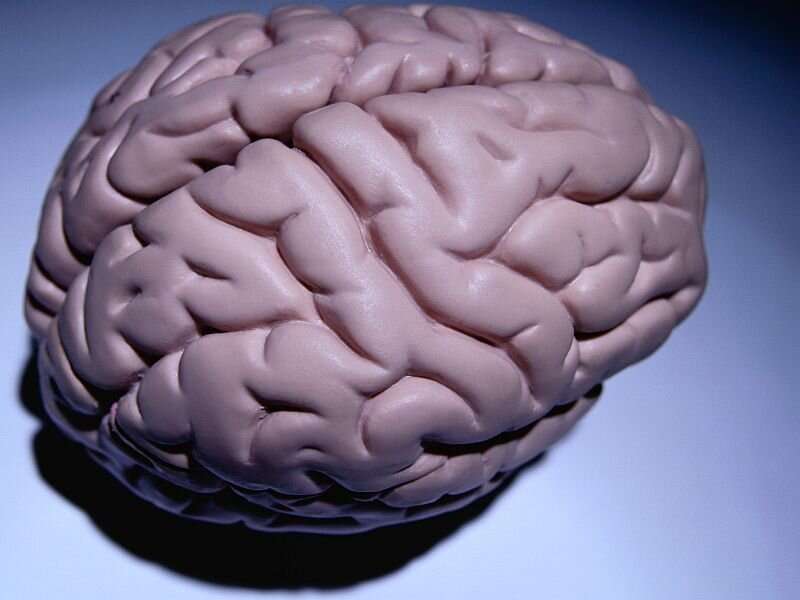Autopsy study may explain why some COVID survivors have 'brain fog'

One of the least understood effects of COVID-19 infection is "brain fog," a kind of mental confusion that can take hold among seriously ill patients, sometimes lingering long after recovery.
Now, a new study has spotted a possible neurological clue in the form of highly unusual cell clusters in the brains of people who had COVID-19.
"What we're talking about is a situation where patients feel fuzzy and foggy in their thoughts," said study lead author Dr. David Nauen.
"It's when you're extremely tired and sluggish, and your mental activity just doesn't seem to be working as crisply and sharply as usual. And it's been reported among COVID-19 patients still under care and afterwards, during the long recovery phase," he explained.
"We thought it must be due to something affecting the brain, because we know other viruses can certainly affect the brain, sometimes with severe neurologic consequences," said Nauen, who's an assistant professor in the department of pathology at Johns Hopkins University, in Baltimore.
So Nauen and his colleagues set out to analyze the brains of COVID-19 patients who had succumbed to their illness.
Between April and May of 2020, autopsies were performed on the brains of 15 randomly selected COVID-19 patients, as well as on two patients who had not been infected.
The first surprise? "There was none of the classic signs of viral disease of the brain, like inflammation and lymphocytes [white blood cells]," Nauen said.
The second surprise? "Instead, we saw unusual cells in the capillaries, called megakaryocytes, that I had never seen in the brain," he noted.
A megakaryocyte "is a cell that normally lives in the bone marrow, where we make red and other blood cells. It makes the platelets that help us clot, in order to heal," Nauen said. "But it's really, really unusual to see them in the capillaries of the brain, because capillaries are like fine little tubes bringing oxygen throughout the brain. So finding megakaryocytes in these tubes is like finding a football stuffed into a really small pipe in your house. Nothing is going to go through."
In the end, the study team found megakaryocytes in the brains of one-third of the deceased COVID-19 patients.
The findings were published online Feb. 12 in JAMA Neurology.
So do megakaryocyte brain formations explain COVID-19 brain fog? Nauen stressed that it's premature to characterize the finding as proof of cause and effect.
"Knowing they're there is the first step. Now we need to figure out why they're in the brain, and what's signaling them to come to the brain by mistake, whether this very different kind of inflammation that we've never seen before is responsible for brain fog and may also be contributing to a heightened risk for stroke," he noted.
"None of these patients had had strokes. And I'm speculating. But you can imagine that if you start to clot off, or block off, this very intricate network of carefully regulated capillaries, then your blood pressure is going to change, get higher, and perhaps raise the risk for stroke," Nauen said.
Meanwhile, Dr. Larry Goldstein, chairman of the department of neurology at the University of Kentucky and co-director of the Kentucky Neuroscience Institute, offered a cautious take on Nauen's findings.
"'Brain fog' is not a specific condition and has no defining diagnostic criteria," Goldstein said.
Brain fog is also "not specific to COVID, and can occur in association with a variety of inflammatory conditions, degenerative diseases, medications—particularly some cancer chemotherapies—and intensive care unit hospitalizations, among others," he added.
Still, in the case of COVID-19, could megakaryocytes be the cause? Goldstein acknowledged that the explanation is "plausible." But so are a wide array of other explanations, including inflammation, reduced blood oxygen, stroke, reduced blood flow and/or "the general complications of hospitalization for an acute, life-threatening illness," he said.
So, absent brain scans or detailed reports on each patient's "cognitive status," it's impossible to know, Goldstein stressed. That means, for now, all that can be said is that "there are a variety of ways brain injury could occur in this setting."
More information: There's more on COVID-19 brain fog at NewYork-Presbyterian Hospital.
David W. Nauen et al. Assessing Brain Capillaries in Coronavirus Disease 2019, JAMA Neurology (2021). DOI: 10.1001/jamaneurol.2021.0225
Copyright © 2020 HealthDay. All rights reserved.




















